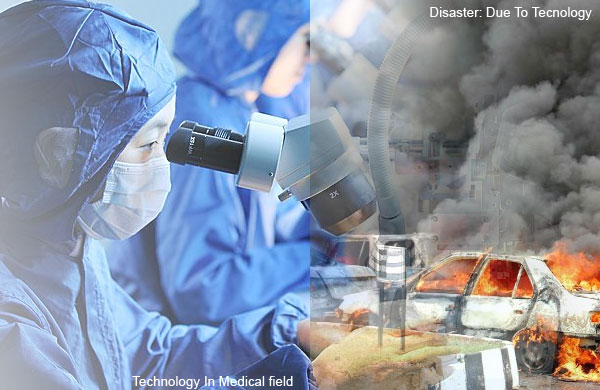Technology is an integral part of modern relationships. While it can provide great ways for partners to connect, stay close, and communicate, if used improperly it could also wreak havoc with relationships.
Digital technologies are rapidly altering public cultures by expanding and multiplying opportunities to meet strangers in public space. Sex and dating apps, for instance, challenge traditional norms governing intimacy between strangers.
There are ways that technology can help facilitate intimacy, when used correctly.
Too Much Intake
One of the primary ways technology harms relationships is due to overusing it.
Studies have revealed that those who rely on their smartphones more frequently tend to experience lower intimacy and satisfaction levels in their love relationships compared to those who use their phones less regularly; this may be partly because people who spend too much time staring at screens communicate less effectively and miss out on enjoying intimate moments with their partners. You can visit this site to learn more.
As was evident during the COVID-19 pandemic, when couples were forced to stay inside for extended periods, relying on electronic devices for entertainment and to stay in contact with family and friends can become problematic for mental and physical wellbeing.
Relying too heavily on electronics may ultimately prove detrimental.
Interfering With Real-Life Conversations
Technology may help couples stay connected, but it can also interfere with real-life conversations – leading to miscommunication, lack of intimacy and misunderstandings in relationships.
Couples should take the time to discuss important topics face-to-face and find ways to spend quality time without always using tech devices as part of the solution. You can click the link: https://www.wikihow.com/Develop-Good-Communication-Skills for tips on how to communicate well.
One effective strategy to increase communication in a relationship is limiting smartphone use while with your partner. Studies have revealed that using smartphones during face-to-face interactions may decrease empathy and understanding of each partner’s feelings, leading to conflict or resentment that’s harmful to its health.
One major drawback of technology in relationships is how it can be used as an excuse to avoid difficult topics, like sex, money and other sensitive subjects. People may use their phones to avoid having important discussions; some even use it to engage in sexual acts with strangers online – this creates barriers between partners that may lead to infidelity and can further break them apart.
While the pandemic prompted existential crises among many, it also provided opportunities for some people to assess their relationship between technology and intimacy in their lives.
Couples are working towards finding new ways of connecting physically and emotionally through new methods of communication; recognising when technology hinders healthy relationships is also vital.
Studies have demonstrated that solitary technology use is associated with decreased intimacy in committed relationships, while joint technology use was linked with greater emotional, social, sexual and intellectual intimacy levels. Companies like XRatedTech can bring you tools to help facilitate intimacy. It is a good idea to discuss any intimate tools with your partner ahead of time.
Read: Bionic Fashion: Wearable Tech That Will Turn Man Into Machine
Emotional Detachment
Sometimes emotional detachment is necessary when an emotion becomes too painful or overwhelming for immediate processing, however if this becomes the norm it could indicate larger psychological issues that require treatment.
If you find yourself becoming emotionally distant over time or withdrawing emotionally from others this could indicate larger psychological concerns; if you notice signs that these trends are ongoing, this should prompt you to seek professional treatment immediately. Some individuals also experience this condition due to trauma and abuse which has lasting ramifications on both mental health and quality of life.
Traumatized individuals may develop attachment issues that make it hard for them to connect in relationships or trust anyone. These difficulties may make it impossible to express emotions properly, having an adverse effect on personal and professional lives alike.
Sometimes this disconnection from others becomes toxic and leads to addiction or self-harming behaviors.
Emotional detachment may be used as a coping mechanism in certain circumstances, such as dealing with someone who gossips about you or when facing legal challenges that are stressful or scary.
Technology and intimacy can often exist in harmony; some are able to find an ideal balance for themselves; for others however, emotional connections with people can be challenging, which can have detrimental repercussions for work as well as relationships at home.
There are strategies available that may help address this issue such as mindfulness training or role-playing exercises; regular exercise routines are another great way of improving emotional detachment.
Addiction
Technology addiction is a growing and serious threat for families living in today’s connected society, particularly among those prone to social media use and other forms of technology dependence.
This problem may manifest itself through compulsive use of internet browsing, computers, phones and/or social networks such as social media accounts; video game addiction; texting addiction or any other obsessive technology use which leads to depression or anxiety.
One study discovered that couples engaging in “phubbing”, or looking at their smartphones during romantic interactions, tend to report lower relationship satisfaction than couples who don’t “phubb”.
Researchers found that phubbing was associated with lower levels of intimacy and higher rates of relationship conflict, and excessive screen time has also been linked to sleep deprivation, poor physical health, and mental illness.
Electronic device use has also been linked with decreased creativity, reduced self-confidence and feelings of social withdrawal among children. Furthermore, children who spend too much time using cell phones become tense and may have difficulty relaxing or sleeping due to constant distraction from electronic devices.
Love and romance technology has the ability to enhance long-distance intimacy by enabling couples to communicate via video calls or virtual reality experiences together.
Though increased tech use may have negative repercussions, not every instance of increased use should be treated as an addiction. If you use the internet to work from home during a pandemic for instance, that should not constitute addictive behavior; similarly, speaking more frequently on the phone instead of meeting up in person would not qualify as addiction either.




